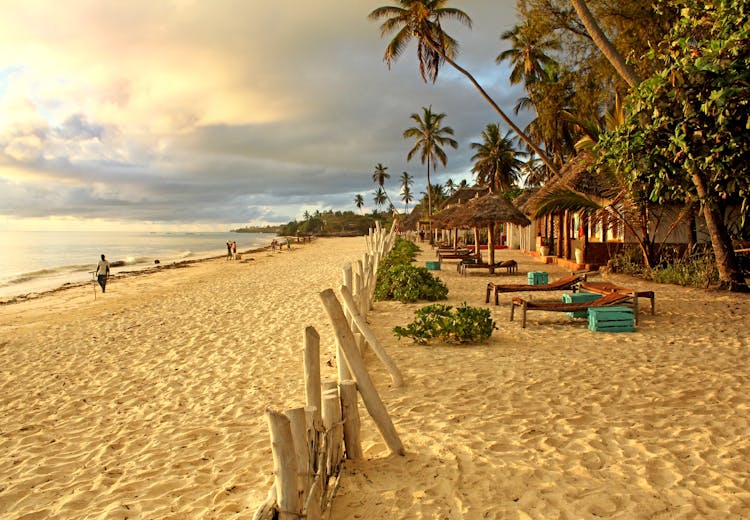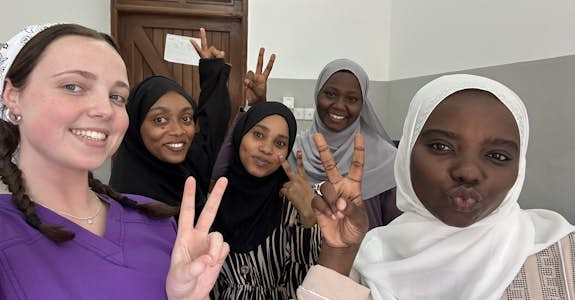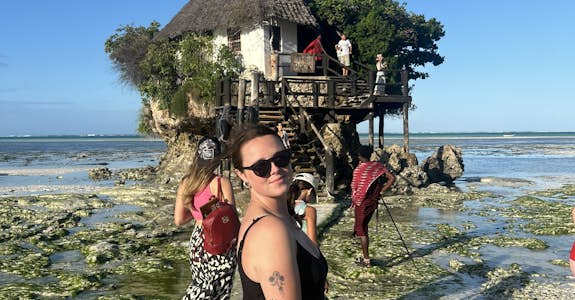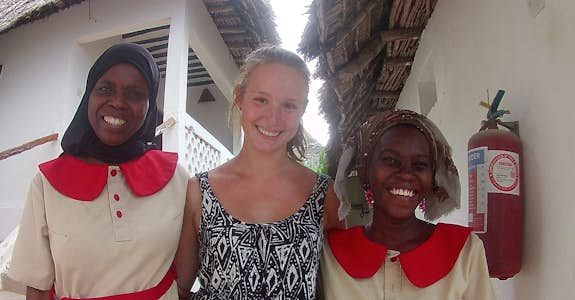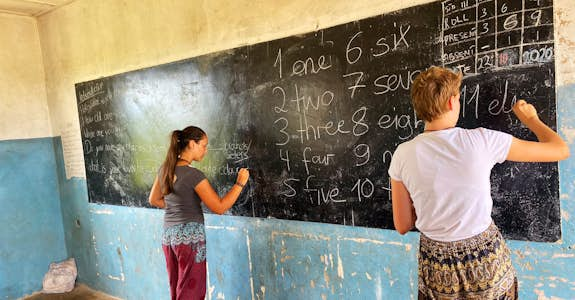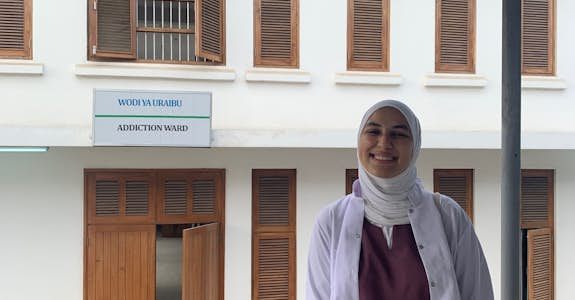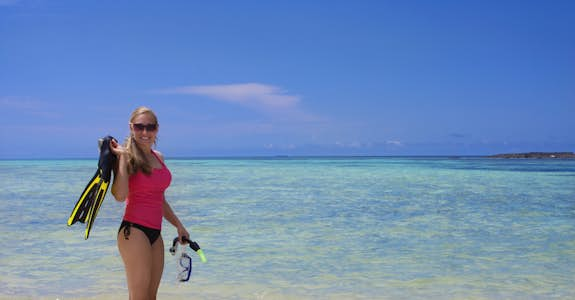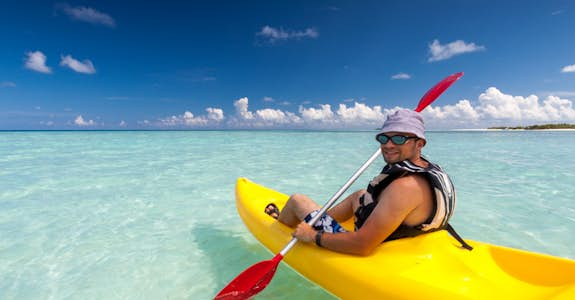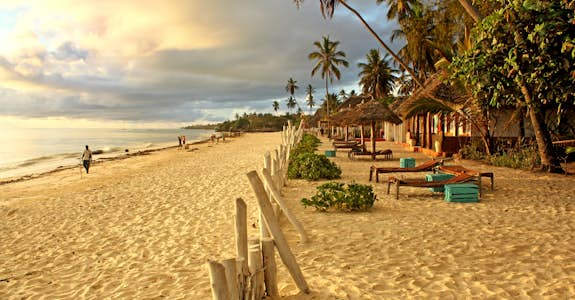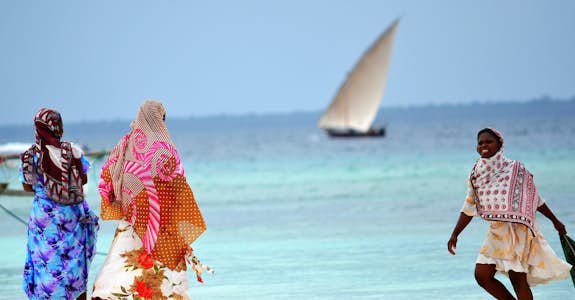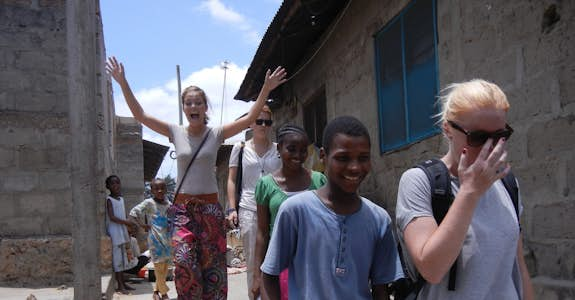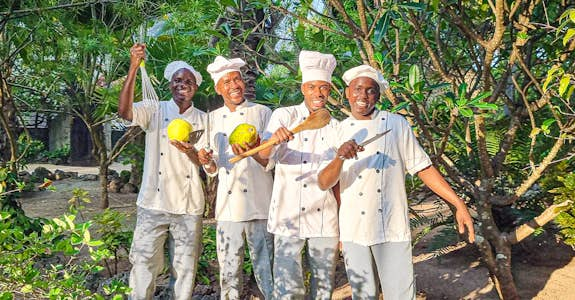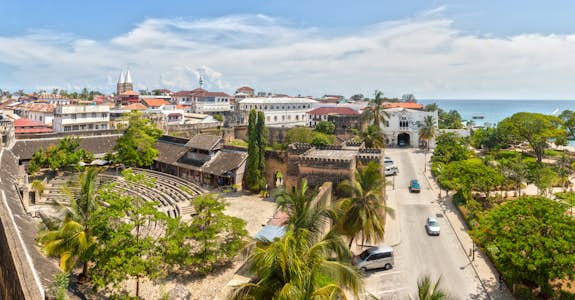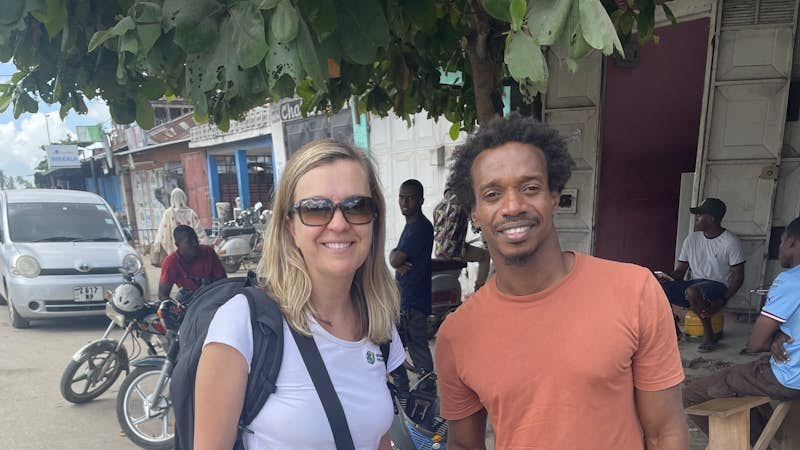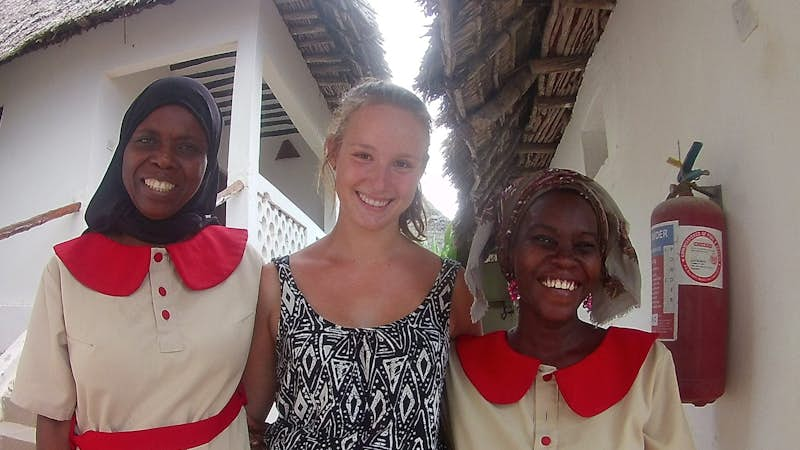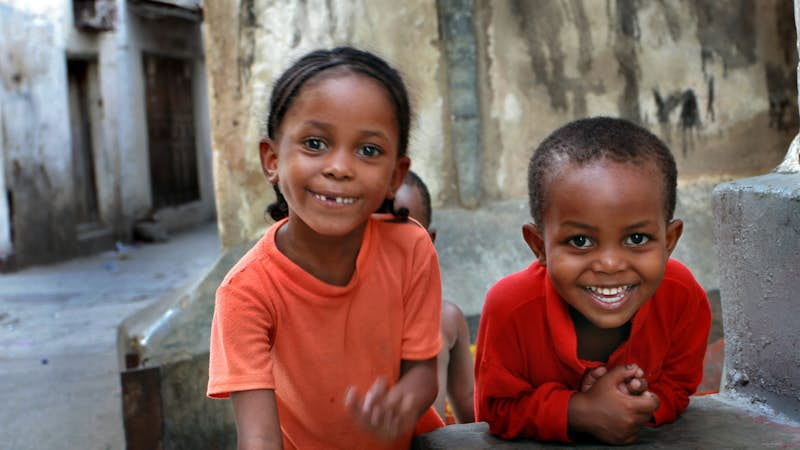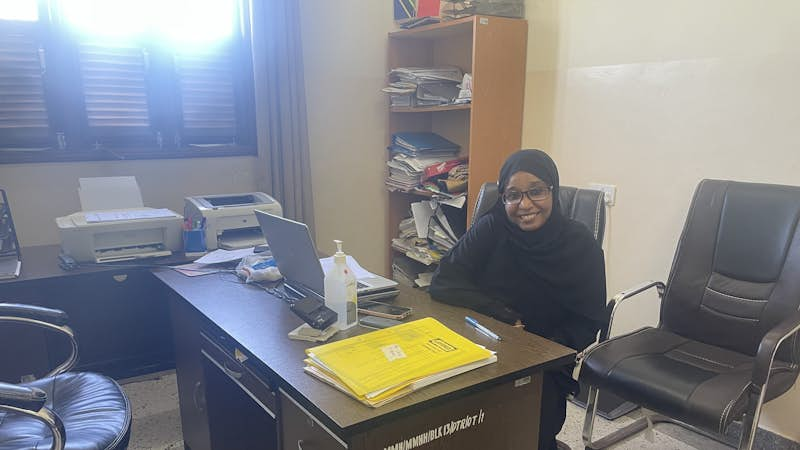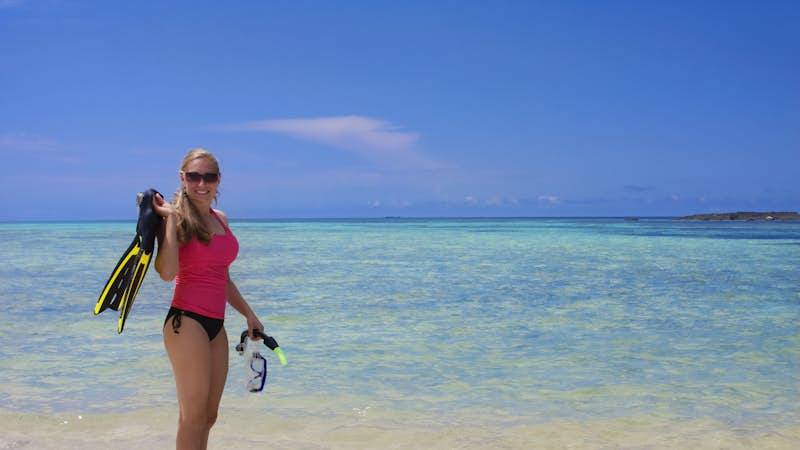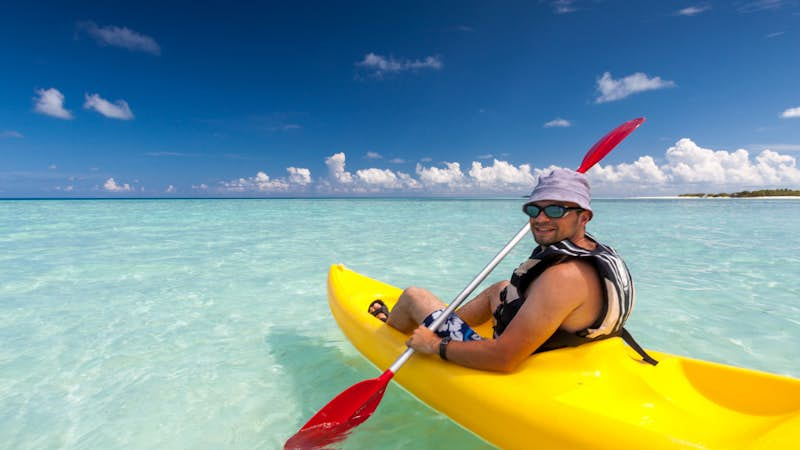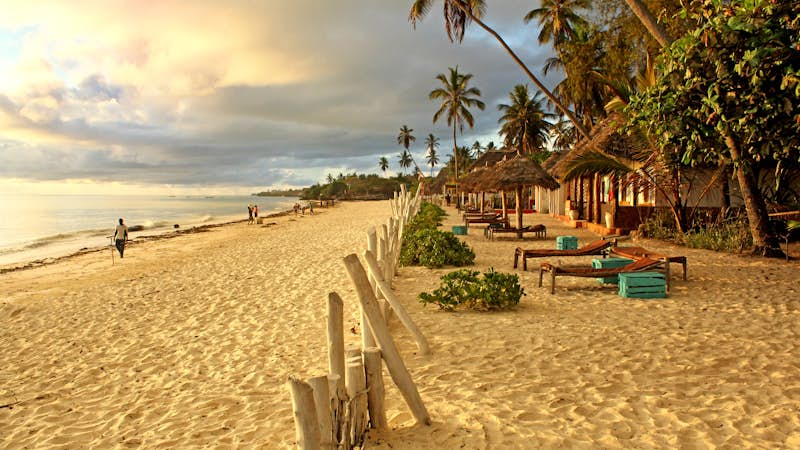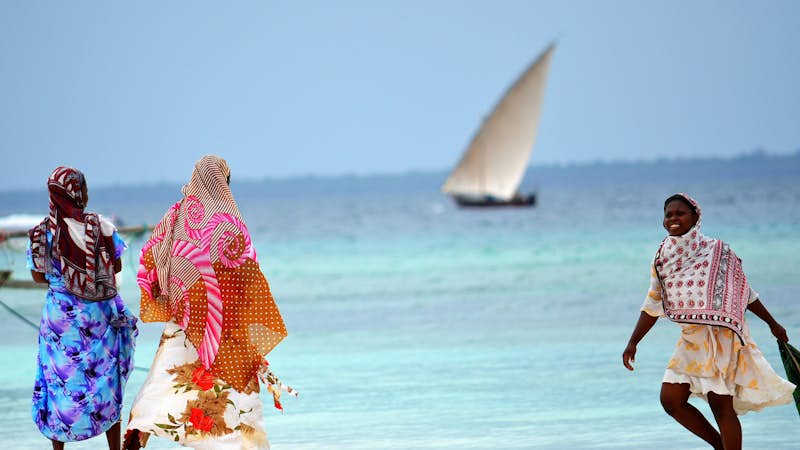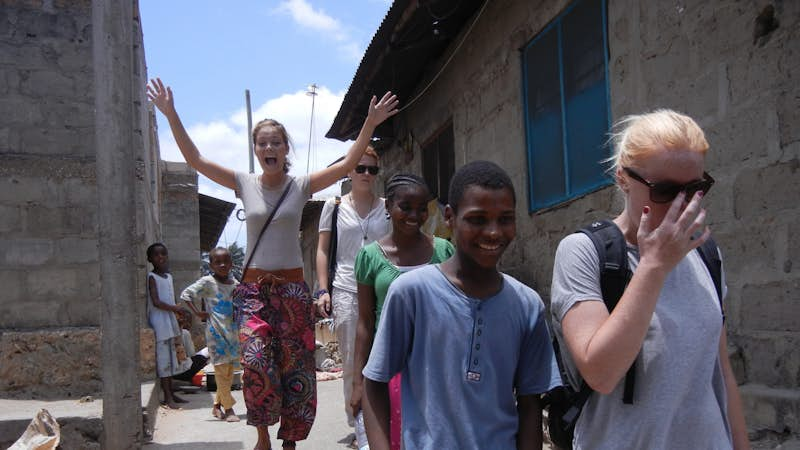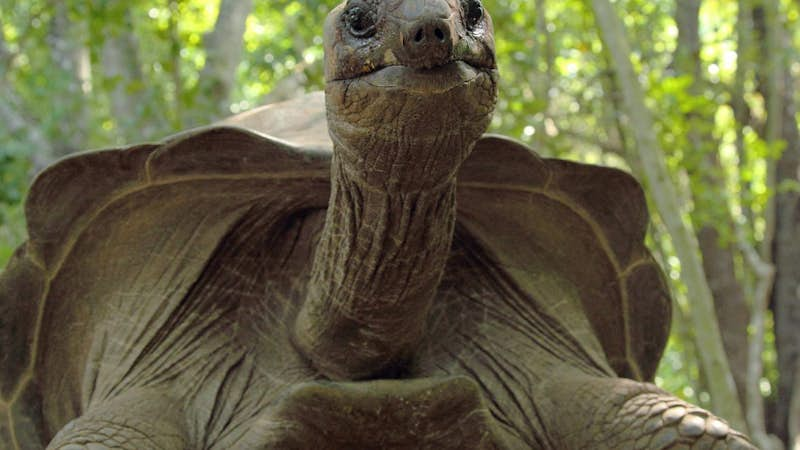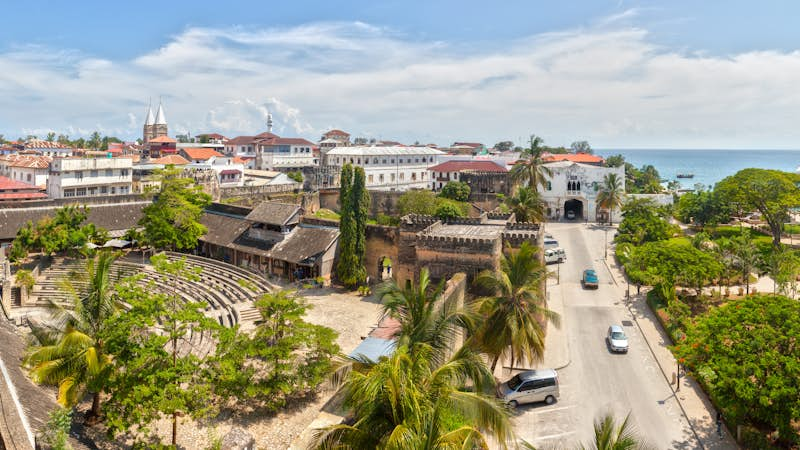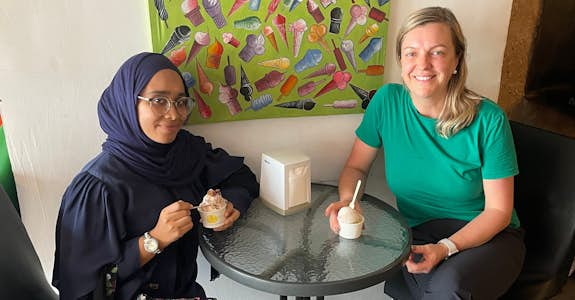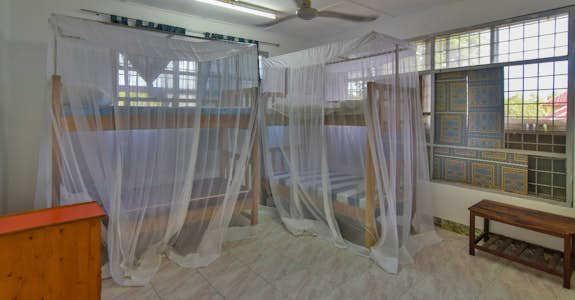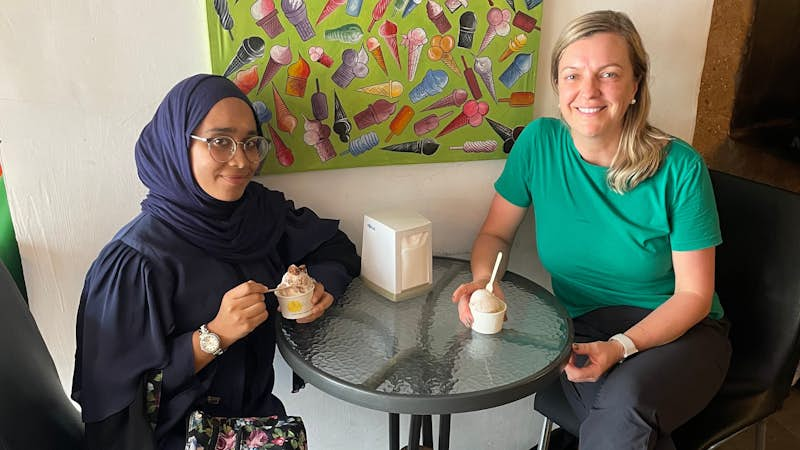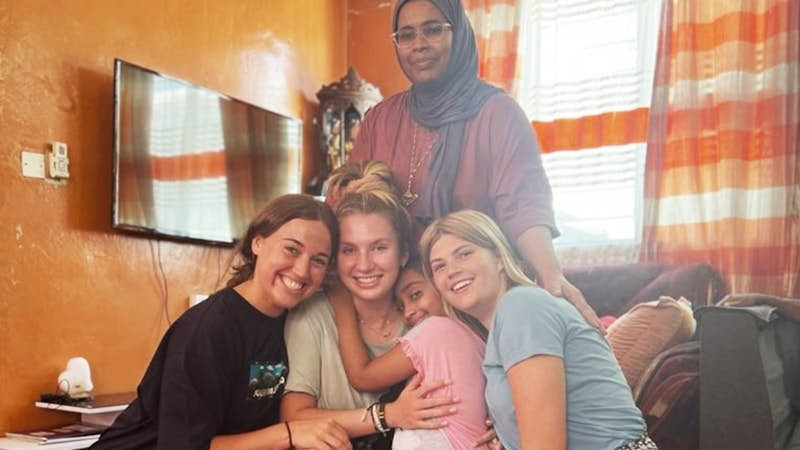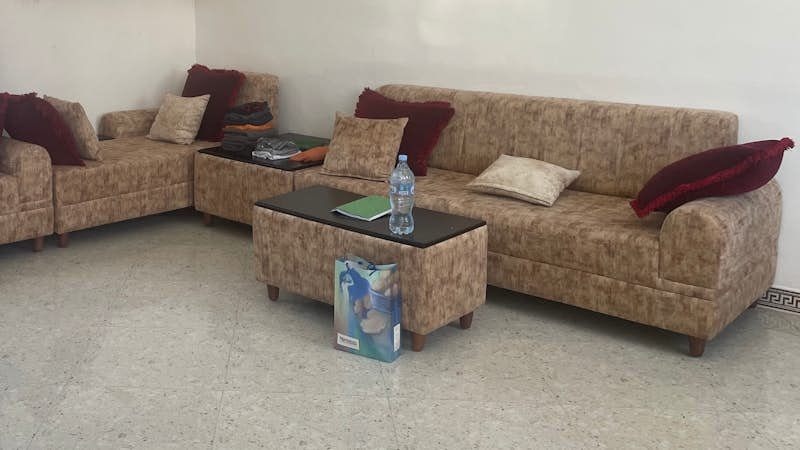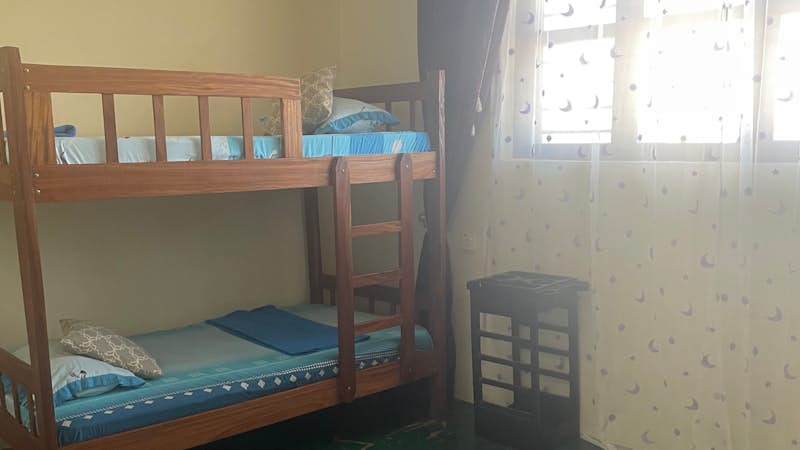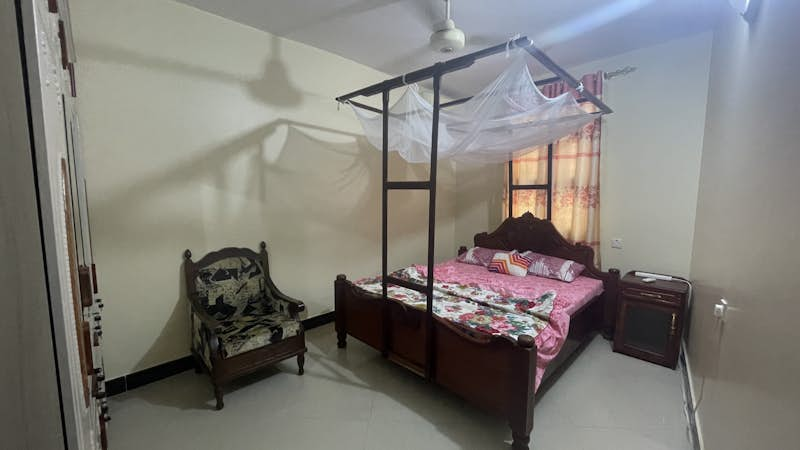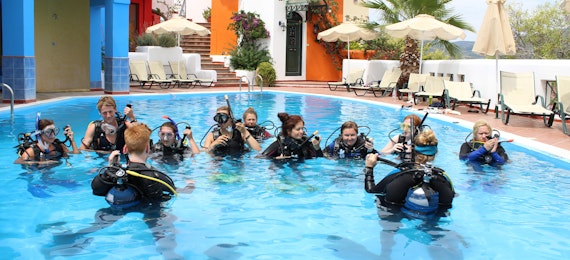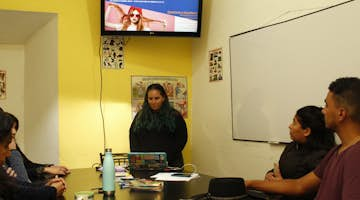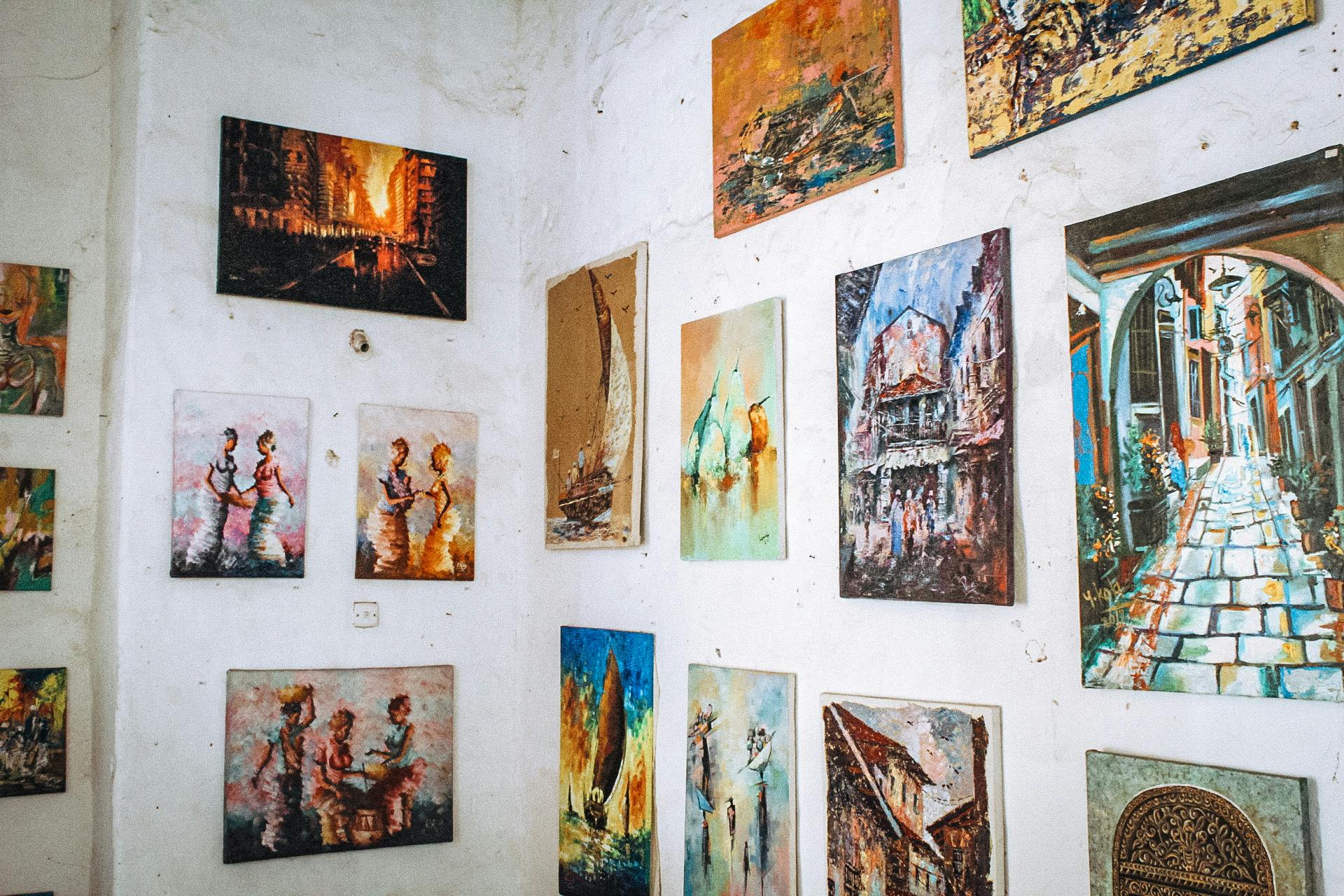
Cultural Arts Internships: Intern abroad in Zanzibar
Support local artisans to make quality crafts and provide business advice to help them market and sell their products. Foster craft making skills, wider business and financial understanding, improved English and computer literacy, to build successful ventures and market products with quality packaging, promotion and networking.
What to expect from your Cultural Arts internship:
- Support the preservation and development of local arts
- Assist artists with income generation
- Liaising within the community to build relationships
- Experience life on Zanzibar, a unique and beautiful African island
Your internship abroad host organization:
- Zanzibar’s Cultural Arts Centre
Internship details
Support local artisans to make quality crafts, and provide business advice to help them market and sell their products. Foster craft making skills, wider business and financial understanding, improved English and computer literacy, to build successful ventures and market products with quality packaging, promotion and networking.
This is an in-country internship, with accommodation and meals provided.
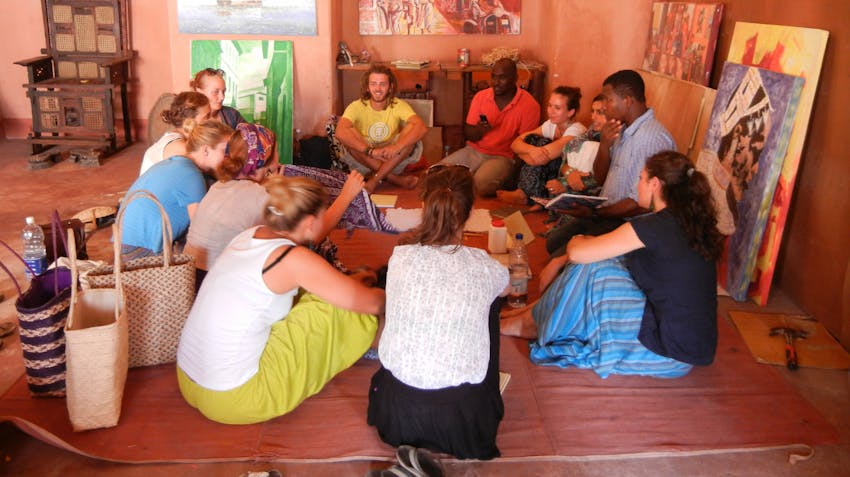
Zanzibar is a colorful and eclectic island off the Tanzanian coast, and its creativity is fostered at the local Cultural Arts Center. Local artisans receive training and support as they look to create and sell their own artwork, and interns can play an important role in working alongside these locals to encourage their development.
Cultural Arts interns are placed in the Cultural Arts Center that provides training in ethical production, craftwork and art. This not only benefits local trainees, but boosts the local economy by improving the quality of local works, and the value they can receive when they’re sold to wholesalers or in local markets. Typical crafts that are produced include baskets, textiles, weaving, soaps, carvings and jewelry.
Interns can provide further support to artisans with business development, assisting with financial management and retail planning. Vocational support is highly valued, and helping locals to develop their English language or computer skills provides another layer of skills that adds to their ability to sell their own products and build their business.
Interns can also work with artisans to better market their products. You can help with product or packaging design, develop promotional material and innovate other solutions to build awareness and encourage sales. Market research can also play a role in understanding new or improved opportunities, including building community relationships.
In all cases, interns should expect that the first week of your experience will focus on settling in and gaining some introductory knowledge, as you will not “hit the ground running”. Rather, you should start with learning about the placement to gain an understanding of what you can build upon, develop, learn, and contribute. Ensure that you ask questions and provide feedback during the introductory period, so that your supervisor understands how you’re progressing. This will help them to better understand important details, such as how quickly you learn, what you find challenging, what you find interesting, etc.
Understand and expect that individual internship experiences vary, as the specific placement that you’re assigned will depend on review of your resume and your current level of studies and experience. Therefore, if you’re at a more introductory level, you should reasonably expect a more introductory internship. Likewise, if you’re interning for a shorter duration, you will have a different experience from someone who is interning for a longer duration. Placement preferences are considered but always subject to availability.
What are the career benefits of interning abroad as a Cultural Arts Intern?
Cultural Arts interns learn from a qualified and experienced supervisor, and can be involved in:
-
Assisting local artisans to make crafts for sale
-
Teaching financial management, English language or computer skills
-
Developing retail plans
-
Product marketing
-
Sustainable packaging design
-
Developing promotional material
-
Market research
-
Network and relationship building
Professional development opportunities:
-
Learn about the arts and handicrafts business at a tourism destination
-
Improve your skills in design, packaging and marketing
-
Get training experience working with local artisans and artists
-
Gain practical skills and boost your employability, with guidance from Intern Abroad HQ’s Experiential Learning Curriculum to support your learning and cultural intelligence.
Are you eligible for this internship?
Submit a free application so we can confirm your eligibility and check availability for your preferred dates.
Not sure which program to join?
Zanzibar photo gallery

Academic credit available for all internships
Get course credit from your college or university while completing your internship abroad or a remote internship program. It's a great way to meet your academic requirements and gain valuable experience at the same time.
Learn about course creditProgram fees
Applying for our Cultural Arts Internship is completely free! The support package covers the assistance we provide in finding your internship and arranging your living accommodations in your host country, ensuring you thrive during your program.
Please note that a deposit of US$499 is required to confirm your place. The remaining balance (minus your initial US$499 deposit) is due at least 60 days before your internship start date.
Duration |
Program Fee (USD) |
|---|---|
| 2 weeks | $1,479 Equivalent to $105 /day |
| 3 weeks | $1,689 Equivalent to $80 /day |
| 4 weeks | $2,004 Equivalent to $71 /day |
| 5 weeks | $2,214 Equivalent to $63 /day |
| 6 weeks | $2,424 Equivalent to $57 /day |
| 8 weeks | $2,844 Equivalent to $50 /day |
| 10 weeks | $3,264 Equivalent to $46 /day |
| 12 weeks | $3,684 Equivalent to $43 /day |
| 16 weeks | $4,634 Equivalent to $41 /day |
| 20 weeks | $5,474 Equivalent to $39 /day |
| 24 weeks | $6,314 Equivalent to $37 /day |
- Airport pick-up
- Airport drop-off
- Daily breakfast, lunch and dinner
- Accommodation
- 24/7 in-country support
- Program orientation
- Dedicated support before, during, and after your internship
- In-country guidance for social and tourist activities
- Sourcing and securing your internship placement
- Personalization of your internship plan
- Coaching from your supervisor
- Documented portfolio of your experiential learnings
- Academic credit facilitation
- International reference letter
- Certificate of Internship Completion
- All in-country transportation
- Visa (if required), flights, travel insurance (mandatory), vaccinations, criminal background check
- Personal spending money for snacks, drinks, public transport, laundry, and leisure activities during your free time.
Free-time experiences & tours in Zanzibar
Take your internship to the next level with Intern Abroad HQ's affordable activity and tour add-ons in Zanzibar! Explore your options below and learn how to book them once you've been accepted onto an internship program.

Spend a day exploring beautiful Matemwe and its stunning marine life.

Spend a day adventuring in the Jozani forest, kayaking through mangroves and visiting a cultural village.

Enjoy an unforgettable guided mangrove tour at sunset in the tidal forests of Chukwani.
Swahili Language Lessons
Swahili, also known as Kiswahili, is spoken throughout Zanzibar and it is the national language of Tanzania. (English is only the official language of the High Court). While fluency in Swahili is not a requirement to intern in Zanzibar, learning some of the local language can help enhance your cultural experience and immersion. Starting with a few lessons can help you learn some basics to demonstrate common courtesy. A maximum of ten hours per week are recommended. Lessons are typically conducted individually, but may be shared between 2-3 other participants of the same level (although, the number of participants per lesson does not affect the cost). For more information about language lessons, interns may speak directly to the local team in-country.
Arrival and Orientation
Internships in Zanzibar begin every Monday and interns may choose to spend a minimum of 2 weeks, up to a maximum of 12 weeks. Exceptions to start date availability may occur when start dates are closed due to public holiday / festival disruptions or if the program has already reached capacity.
Airport pick up and accommodation are included in the Program Fee, as well as return transportation to the airport in Zanzibar at the completion of the internship. Interns are required to arrive on the Sunday before their Monday start date. In order to receive this airport pick up, interns fly into the Abeid Amani Karume International Airport in Zanzibar (airport code: ZNZ). Note that all participants are advised not to book flights until they have first registered to confirm their internship placement.
Upon arrival, interns will be met, greeted, and transferred to the accommodation, to settle in and rest. Accommodation is covered from the Sunday night of the internship start date. The last night of the accommodation is the Saturday night of the final week, leaving interns free to depart on the Sunday.
Orientation typically takes place on the Monday start date and covers important details for your internship, including introductions, information about culture, customs, rules, expectations, safety, language lessons, cultural excursions, and more. For participants who will be interning within Zanzibar Town / Stone Town, a walking tour is also covered. Tourism & Hospitality interns, who may be based within popular beach areas, such as Nungwi, Kendwa, Kiwengwa, Paje, Jambiani and Michamvi, will receive a local orientation that’s relevant to their area.
If you are planning to spend time independently in Zanzibar prior to the commencement date of your internship, and will not require an airport pick up, then you’ll be required to come directly to the local team’s office in Zanzibar Town / Stone Town for meet and greet on your start date. From there, you will be guided to your home-stay accommodation.
Visa Requirements
It is important to note that internships in Zanzibar require all participants to obtain a visa. We advise Zanzibar interns to purchase and obtain this in-country (at the airport, on arrival in Zanzibar). Interns receive details in advance, which outline instructions for this process (depending on your specific internship details), along with anticipated costs.
To cover the cost of the visa sufficiently, most interns need to budget US$50-100. However, Tourism & Hospitality interns will need to budget US$250 for a Business Visa. The visa is valid for 90 days.
Some interns are additionally required to purchase a Work Permit or Trainee Permit in-country. This is a government requirement and it will apply to participants who are doing their placements for longer than 4 weeks. The Work Permit is required in addition to the required cost for your visa. It is US$400 and will be arranged through the Zanzibar Labor Office, once you are in Zanzibar.
The Work Permit requirement applies to:
- Cultural Arts interns - you will need to cover the cost of a Work Permit in Zanzibar. Please budget US$400 for this.
- Social Work & Education interns - you will need to cover the cost of a Work Permit in Zanzibar. Please budget US$400 for this.
- Tourism & Hospitality interns - you will need to cover the cost of a Work Permit in Zanzibar. Please budget US$400 for this.
If this is required then it will be arranged with you during the orientation, as coordinators will assist you at the Zanzibar Labour Office. Please note that the requirements and costs for such visas and/or permits are outside the control of Intern Abroad HQ and are subject to change without notice.
Zanzibar also requires all visitors to purchase mandatory travel insurance via the Zanzibar Insurance Corporation (ZIC). This is a government-owned entity and the insurance can be purchased online. Personal insurance policies will not be accepted. Failure to comply with this mandatory requirement may result in denial of entry at immigration checkpoints. Intern Abroad HQ still requires all program participants to have travel insurance that includes overseas health insurance cover. This must be obtained in addition to the ZIC insurance, to protect against policy exclusions.
Any interns who choose a duration of more than 12 weeks or more will be required to renew their visa arrangements, to ensure that a stay permitting 90 days is possible. Interns should ensure that such additional costs are planned and budgeted for accordingly.
Accommodation and WiFi
Interns in Zanzibar have several accommodation options, all of which are covered by the standard program fee payment.
- Self-catering apartment (meals excluded).
- Homestay accommodation (meals included).
- Custom arrangements for Tourism & Hospitality interns
An Accommodation Preference Form will be provided for interns to complete and return in advance. Preferences are taken into consideration but will be subject to availability. Contact our Program Manager for more information.
The accommodation pictured in the photo gallery of this webpage provides examples of both homestay and apartment options. Since we work with more than one accommodation, the exact accommodation you’re assigned may differ slightly from the example photos. Rooms sizes vary.
Any requests to exclude the accommodation service from your internship experience, in order for you to make independent arrangements, must be discussed and confirmed in advance.
Meals
Meals are provided for internship guests assigned to homestay accommodations only. The service provision covers two meals per day (breakfast and dinner). Rice is a staple and an array of spices are typically used to flavor rice, meat, fish and curry dishes. Fresh fruits can include pineapple, mango and watermelon. Typical meal examples include chicken with rice and vegetables, potatoes, beans, salads, samosas, curry, and chapati.
Please be sure to let us know of any specific dietary requirements that you have in advance (i.e. allergies and intolerances), so that we may ensure your hosts are aware and make recommendations to you accordingly.
It is important to note that the provided meals are not likely to reflect what you’re used to eating at home. Local portion sizes may also differ from your own dining habits. Interns are encouraged to budget extra spending money to cover any of your own snacks, treats (including lunches, which are not included through homestay accommodation).
If desired, interns allocated to apartment accommodation may request a meal service for an additional weekly cost.
Essential country information
| Capital | Zanzibar City |
| Population | 1.304 million |
| Languages | Swahili, Arabic, English |
| Currency | Tanzanian Shilling (TZS) |
| Time zone | UTC+03:00 |
Weather and climate:
Being near the equator, the islands of the Zanzibar Archipelago are warm year-round, and the temperature doesn’t vary too much throughout the year. The usual highs are between 85°F / 91°F (30°C / 33°C) and the usual lows range between 70°F and 76°F (21°C / 24°C). The hotter times of the year are typically from December through March. From July through October, the temperatures are more comfortable. The wetter season usually begins in late November, leading up to the wettest month of the year, which is April. After April, the dry season begins again around mid to late May.
